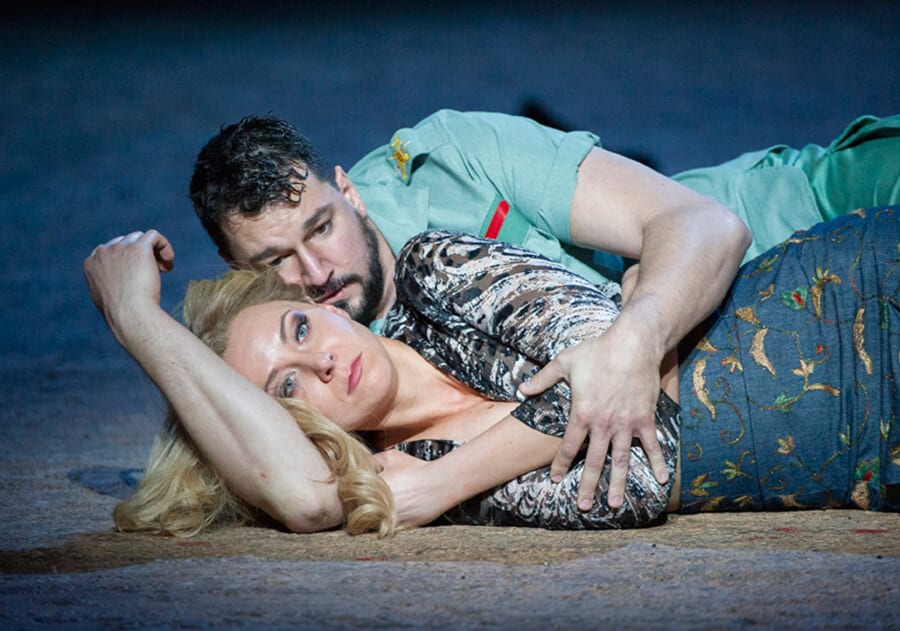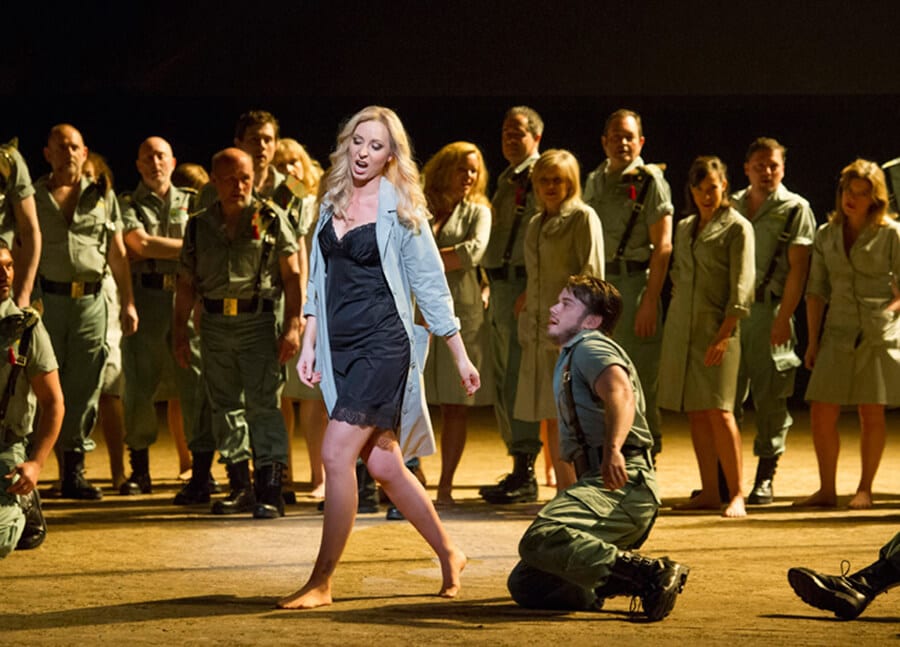One of the best loved and most played operas in the repertoire, there is an argument for taking new looks at Bizet’s Carmen. Calixto Bieito has set it in Spain as originally intended but updated the action to the end of the Franco era. The approach, therefore, is much more monochrome and noir than is usual for this opera and it loses some of its famous exoticism. There is power in the presentation of the whole story from a macho and militaristic point of view in the waning days of a dictatorship. The design also uses the vast spaces of the Coliseum stage and the emptiness possible to create a bleak production that is certainly thought-provoking. The chorus is larger than usual, with actors and dancers interpolated, and there are some spectacular scenes when they are used as a massed force.
However, ultimately the production went against the score and did not fit easily with the story, even though the original setting is at the fag end of the Spanish Empire, post the Napoleonic wars, when the whole Spanish golden age was winding down. Bieito’s approach is one-dimensional. The viewpoint is entirely focussed on macho, violent men and their view of women; and that has no real complexity, which contradicts the way Bizet’s music depicts her.
I have always taken Carmen herself to be poignant because she is a free spirit trapped in a particular kind of society. She is defiant and determined to be her own self without lies or hypocrisy. In this production she comes across as nothing more than a self-aware tease. Justina Gringyte has a strong stage presence and gave a passionate performance; she has a fine voice with an acid top that fitted Bieto’s characterisation of a hard-hearted, tarty gypsy girl. By contrast, Eric Cutler’s Don Jose is soft toned and tender and his was the performance of the evening. As the evening progressed he turned from a pushover into a truly dark, violent, obsessed man. The climactic scene between Carmen and Don Jose was utterly convincing and gripping.
Musically, it was a good evening all round. Leigh Melrose played Escamillo more as a wheeler dealer than macho bullfighter but has a rich baritone voice. Eleanor Dennis’s Micaela was beautifully sung if strangely interpreted dramatically. Sir Richard Armstrong’s conducting was idiomatic and well controlled, getting lovely sound from the orchestra.
The production is visually striking but its clumsy portrayal of the characters’ violent machismo and explicit sexuality is at odds with the subtleties in Bizet’s music. There is more to Carmen and there is more to Carmen herself.





